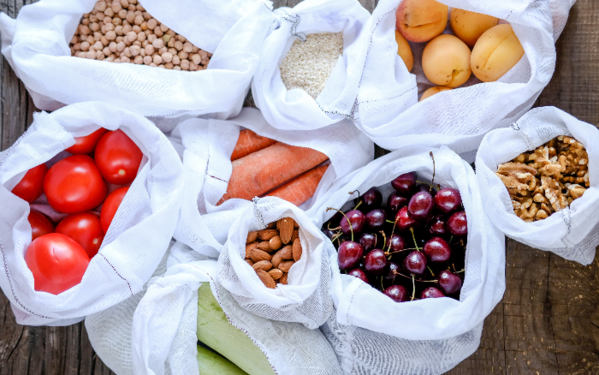There is just one question that arises in everyone’s mind and that’s:
Whether investing in a reusable bag is actually going to reduce your environmental footprint?
Prior to answering this, it’s essential to comprehend the reason why this is even a discussion. Different opinions on whether single-use plastic bags are more awful or better for the environment over reusable options stem from unfair comparisons.
A couple of factors why people may be comparing apples to oranges:
Focus – relying upon which part of environmental impact you’re focusing on; the outcomes can vary. Energy utilization, natural resource utilization, emissions, and pollution, are only a couple of the various regions you can think about. To comprehend the full cost, you need to think about the total environmental impact of disposable vs reusable, not only just one aspect or two.
Types – various sorts of disposable bags have different impacts. There are numerous varieties of both paper and plastic bags. There is much more variety in reusable mesh produce bags. This makes it hard to make blanket statements like “all disposable bags are more regrettable reusable alternatives.”
Environment Issues Caused Due to Bags
There are various types of environmental impacts to think about. Few may be quite crucial to you than others.
The most common sorts of environmental impact from products such as bags include:
Natural Resource Use – deforestation, global warming, biodiversity loss
Emissions – air pollution, global warming,
Pollution – degradation of the natural environment, biodiversity loss
A few individuals may weigh one factor as quite crucial than another based on their opinions of which environmental problem is most pressing.
The highly common comparison for environmental impact is the product’s complete ‘carbon footprint’ which evaluates how much it adds to global warming.
While studying the impact of different types of grocery bags. Here’s what we got…
Defining Several Types of Bags
The grocery bags are divided into two categories: disposable and reusable.
Disposable Bags
Basic Plastic (HDPE) – Also known as High-Density Polyethylene, this is quite a lightweight single-use plastic bag you get at almost each grocery store.
Paper – Paper bags are quite less basic than plastic bags but can still be searched in a few stores. They are the actual “disposable” bag as well as are intended for single use.
Reusable Bags
Cotton – Few bags are mostly referred to as “totes”. They are made from cotton and are designed to be reused several times.
Polypropylene – This is among the common sorts of reusable bags now being supplied by retailers. Designed from a highly durable plastic than the HDPE bag, this reusable bag is developed to be reused several times and often has a rough insert in the bottom for extra strength.
Impact of Various Types of Bags
Reusable bags need more material and great energy input than disposable bags which provides them with a huge environmental footprint while comparing them 1 to 1.
Be that as it may, since the average person utilizes hundreds of plastic bags each year, we need to consider the number of plastic or paper bags you displace by utilizing a reusable bag.
Breakeven Uses: Disposables vs Reusable
When does a reusable bag turn out to be more eco-friendly than a disposable bag?
To be a very environmental-friendly, you would want to utilize these options several times like mentioned below:
Paper Bags: 4 Times
Polypropylenes: 14 Times
Cotton: 173 Times
Clearly, when you excessively reuse a bag, you are lowering its environmental impact.
More Important Considerations
There are several variables to think about while trying to decrease your environmental impact that can affect your decisions.
Reusing Disposable Bags
When you make use of plastic bags many times (even if you utilize them as a trash can liner) that will reduce their environmental impact. It’s crucial for you to understand that when you do not have the alternative to stop using plastic bags, reusing them is the ideal way to decrease their impact.
Too Many Bags?
Reusable bags are becoming quite popular and several brands give them out for free as promotional items. If you begin to gather reusable bags you can really boost your environmental impact.
Keep in mind that the ideal way to decrease your impact is to utilize less as well as reuse as often as possible.
Important Takeaways
Producing a single plastic bag comprises a relatively low environmental impact.
Paper bags are quite more eco-friendly while reused 4 times or more.
Polypropylene bags are a great choice while considering a reusable option. After just 14 uses this bag is already quite eco-friendly than conventional plastic bags.
Cotton mesh produce bags have a huge environmental impact due to the efforts that go into increasing cotton and designing bags. If you can keep this bag used for more than once, it will be quite eco-friendly than plastic bags, but it requires over 173 uses to break even.

